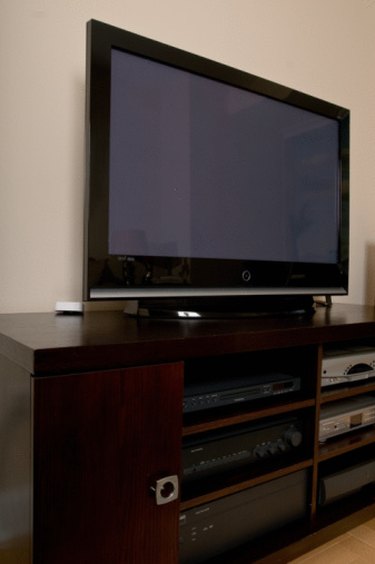
HDMI (High-Definition Multimedia Interface) makes it simple to get high-quality sound and video from a home theater system. HDMI is an all-digital connection capable of carrying multi-channel audio and video signals in just one cable. HDMI also supports high-definition video and high-resolution audio, and is the only connection compatible with formats, including Dolby TrueHD, DTS-HD Master Audio and 3D video.
HDMI Inputs
Video of the Day
HDMI inputs are found on digital TVs and many home theater receivers. These inputs are designed to accept one end of an HDMI cable, through which audio and video are digitally transferred from the HDMI outputs of devices, such as Blu-ray players, game consoles and A/V receivers.
Video of the Day
HDMI Outputs
HDMI outputs "feed" audio and video signals into the HDMI inputs of digital devices, which receive and process them. For example, the HMDI output of a Blu-ray player could be connected to an HDMI input on an A/V receiver or directly into a TV's HDMI input.
Making the HDMI Connection
Making an HDMI input-to-output connection requires an HDMI cable, which has the unique ability to transmit high-resolution audio and video within a single cord. The cables are terminated with plug connectors, typically featuring 19 pins. There are no male/female or left channel/right channel concerns with HDMI cables, as both ends of the cable are terminated with plugs capable of connecting to either HDMI inputs or outputs.
Analog-to-HDMI Conversion
Many A/V receivers contain digital processors that can take analog video signals, from a VHS or DVD player, and convert them to HMDI. This makes it possible to use just one HDMI cable, connected from the receiver to a TV, for all video processing.